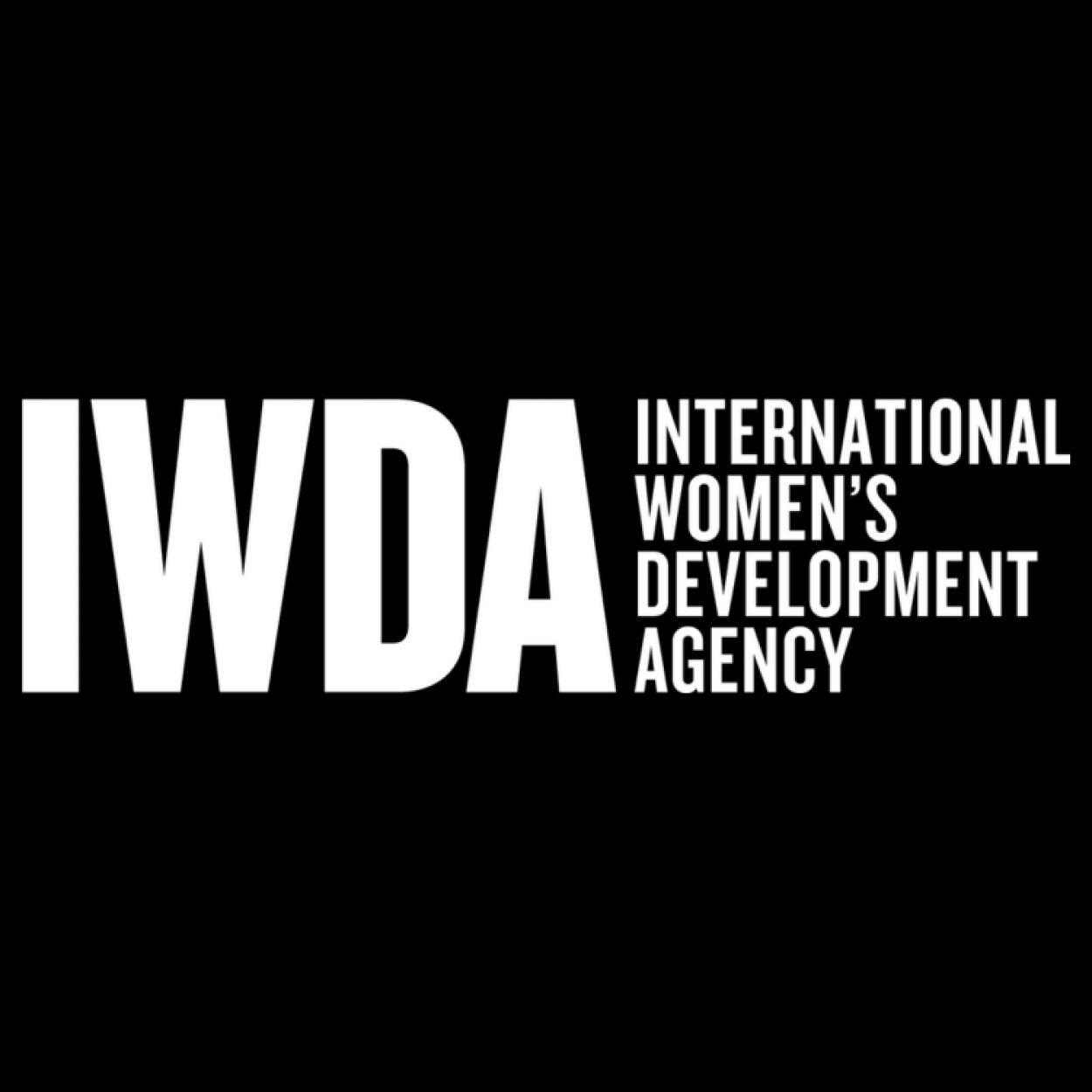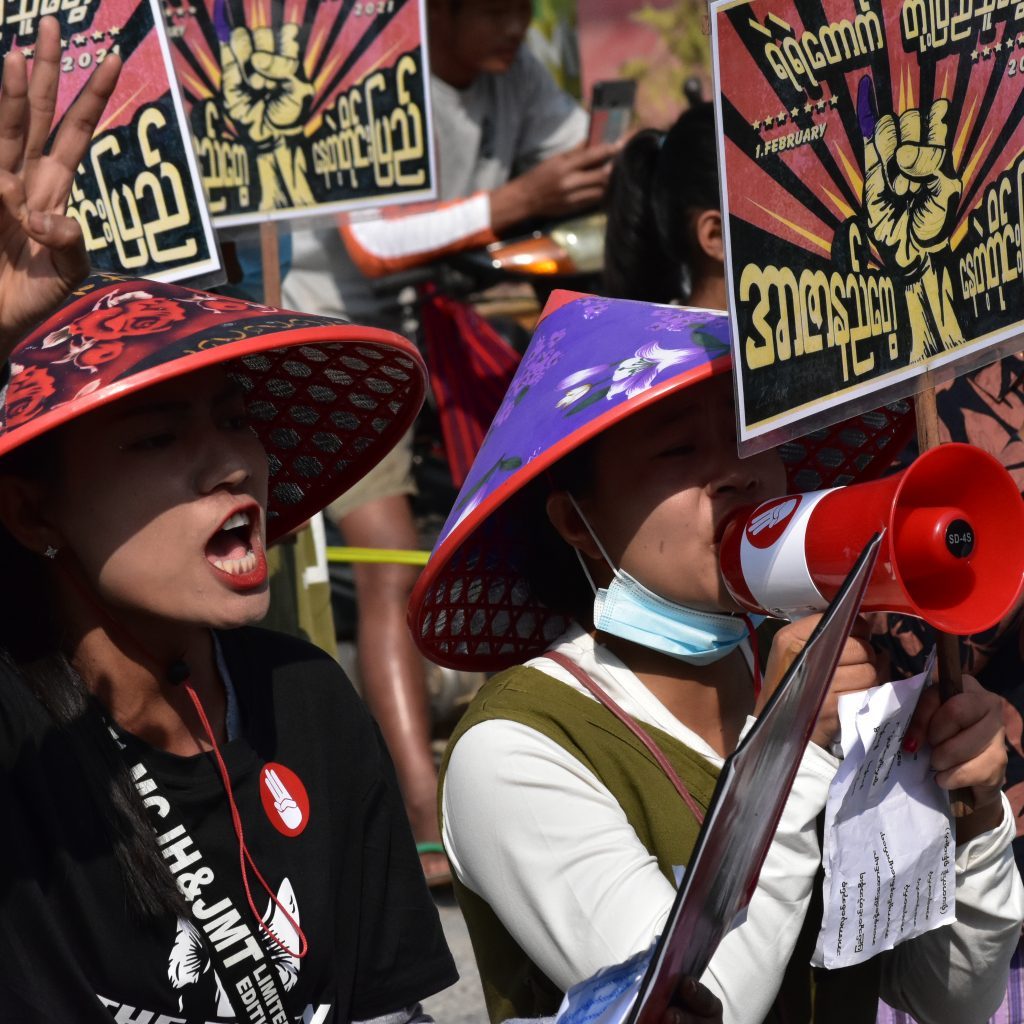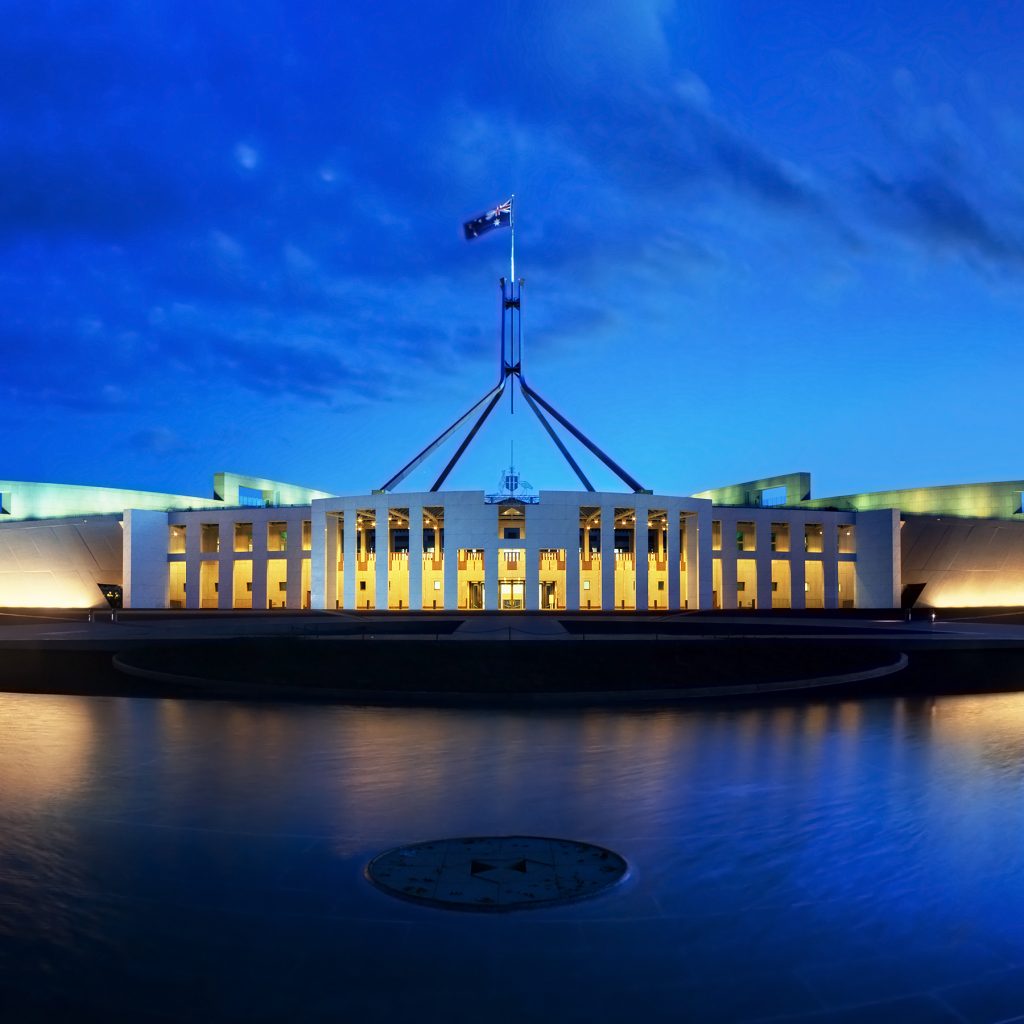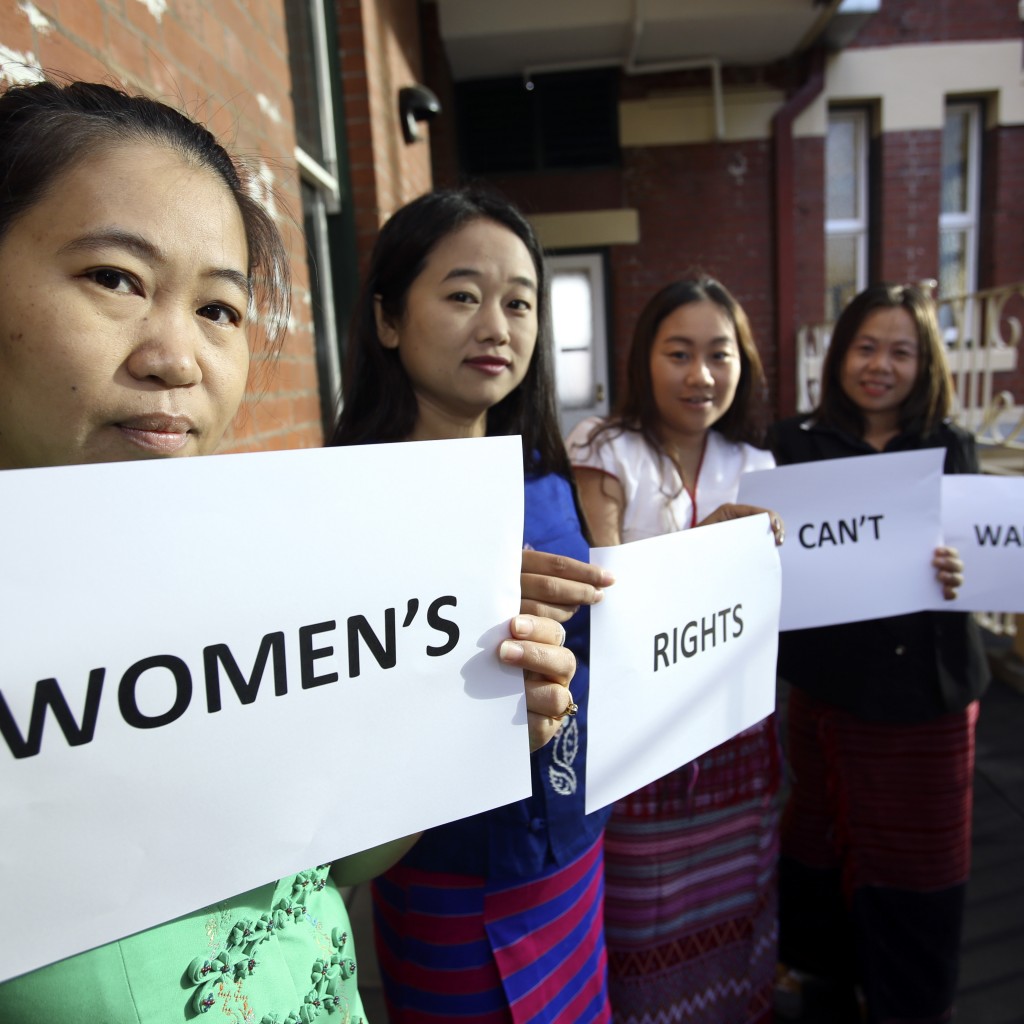
Women MPs doubled in Myanmar’s new-look parliament
Today marks the first sitting day of Myanmar’s new parliament. The number of women MPs has more than doubled. Many of these MPs have strong ties to the country’s growing women’s rights movement, raising new hopes for laws and policies that promote gender equality.
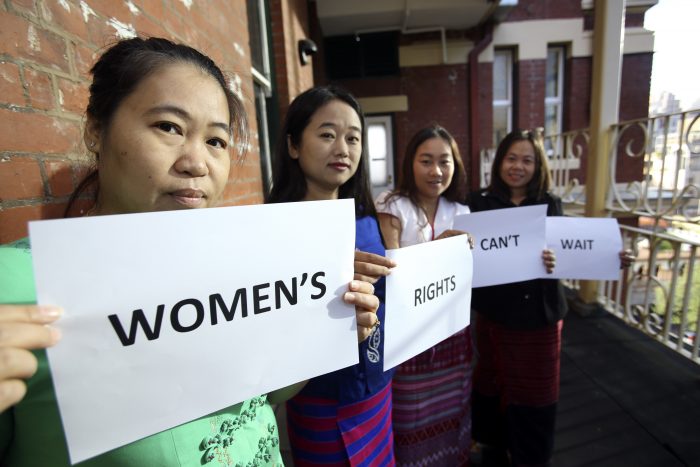
Today marks the first sitting day of Myanmar’s new parliament. The number of women MPs has more than doubled. Many of these MPs have strong ties to the country’s growing women’s rights movement, raising new hopes for laws and policies that promote gender equality.
Myanmar’s new popularly-elected parliament sits for the first time today. The landmark election in November last year resulted in a landslide victory by Aung San Suu Kyi’s pro-democracy party, the National League for Democracy.
The new-look parliament includes 64 women in elected seats across the upper and lower houses. This equates to 13% of elected seats (up from 6.2%). According to the Constitution, 25% of seats are reserved for the military. When the military MPs (who are almost entirely male) are included, women hold approximately 9.7% of seats – up from 4.4%.
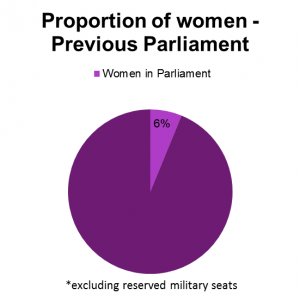
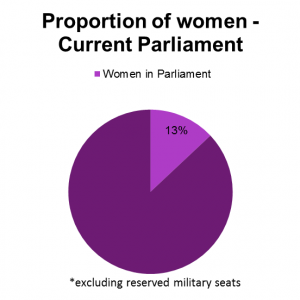
The majority of elected women are members of the National League for Democracy. The many ethnic parties that contested the election received less votes than anticipated. Nevertheless, six women were elected from four different ethnic nationality parties: the Shan Nationalities League for Democracy (2), Arakan National Party (2), Ta’ang (Palaung) National Party (1), and the Zomi Congress for Democracy (1).
The doubling of women MPs is an important step towards strengthening the voice of women. However, it still leaves Myanmar with the second lowest percentage of women in national parliaments across ASEAN countries, above Thailand which has the lowest level at 6.1%.
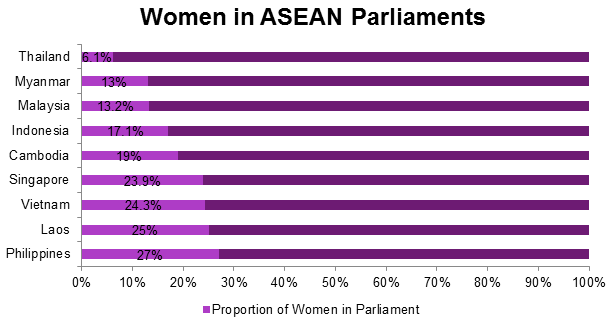
Many of the newly elected women honed their leadership skills through involvement in Myanmar’s growing women’s movement. They are passionate advocates for democratic reforms, peace, and gender equality. Since 2011, when political reforms started providing space for civil society to re-emerge, women’s rights organisations have become increasingly visible. International Women’s Development Agency (IWDA), has been supporting Myanmar women’s rights organisations for over 20 years and will continue to strengthen our partnerships in this new political setting.
The pool of newly elected women MPs includes an impressive number of articulate, courageous, and highly competent women. Many of these women have spent years in prison as political dissidents.
Progressive women MPs are likely to face intense scrutiny from the public and their male colleagues. While campaigning, many women reported experiencing ridicule based on negative gender stereotypes. There are strongly held beliefs in Myanmar that leadership is the prerogative of men. Myanmar also has an institutionalized tradition of male leadership, with men dominating key religious posts and a history of rule by an all-male military junta spanning almost 50 years. The iconic Aung San Suu Kyi continues to be an outstanding exception.
Civil society organisations are strategising on how best to support progressive MPs to be strong advocates for gender equality, within both their parties and the legislature. Many women MPs have already expressed interest in establishing a women’s parliamentary caucus that unites progressive women across party lines. A women’s caucus, working in partnership with a strong women’s movement, has great potential for influencing political and legislative outcomes. Some of the immediate priorities IWDA’s partners have identified include implementing the National Strategic Action Plan for the Advancement of Women (2013-2022), gender quotas in formal peace processes, and enacting legislation on violence against women.
Experience in other countries, including Australia, also shows the importance of cultivating strategic alliances with male MPs interested in advancing gender equality. The support of influential male allies will be critical in redefining political priorities. All MPs will also need to show leadership and a commitment to ongoing democratisation by encouraging increasingly diverse and representative candidates for future elections.
Resourcing women’s rights organisations and networks to deliver ongoing support to women MPs through initiatives such as mentoring, technical advice, capacity-building and linking with women MPs internationally have also proven effective in other contexts.
IWDA’s contribution to the advancement of women in civil and political leadership in Myanmar will continue to grow. We are committed to extending our 20 years of partnership with women’s rights organisations as Myanmar embarks on a promising new chapter in the country’s history.
Joanna Hayter is Chief Executive Officer, International Women’s Development Agency and Jen Clark is Program Manager (Myanmar) at International Women’s Development Agency.
IWDA acknowledges the generous support provided to our Myanmar program by the Australian Government, the Netherlands Government and the Foundation for a Just Society.
